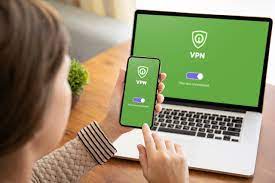The Most Secure VPN: Protecting Your Online Privacy
In today’s digital world, where our personal information is constantly at risk of being compromised, using a Virtual Private Network (VPN) has become essential. A VPN not only allows you to access the internet securely but also ensures that your online activities remain private and protected.
While there are numerous VPN providers available, it is crucial to choose the most secure one that prioritizes your privacy. Here are some key features to look for when selecting the most secure VPN:
Strong Encryption
A reliable VPN should employ robust encryption protocols such as AES-256, which is currently considered unbreakable. This encryption ensures that your data remains unreadable to anyone attempting to intercept it, providing an additional layer of security.
No-Logs Policy
One of the primary reasons for using a VPN is to keep your online activities private. The most secure VPNs follow a strict no-logs policy, meaning they do not store any information about your browsing history or connection logs. This ensures that even if someone were to request this data, there would be nothing to provide.
Kill Switch
A kill switch is an important feature that prevents any data from leaking outside of the encrypted tunnel created by the VPN. In case your VPN connection drops unexpectedly, the kill switch immediately shuts down your internet connection to prevent any unprotected data from being exposed.
DNS Leak Protection
DNS leaks can compromise your privacy by revealing your true IP address and allowing others to track your online activities. The most secure VPNs implement robust DNS leak protection mechanisms to ensure that all DNS requests are routed through their encrypted servers, preventing any leaks.
Multi-Factor Authentication
Enhancing the security of your VPN account is crucial. Look for a VPN provider that offers multi-factor authentication (MFA) as an additional layer of protection. MFA requires you to provide multiple forms of verification, such as a password and a unique code sent to your mobile device, further securing your account.
Trusted Server Network
The most secure VPN providers operate their own dedicated servers rather than relying on third-party hosting services. By controlling their server network, they can ensure that the infrastructure is secure and free from any potential vulnerabilities or unauthorized access.
Remember, choosing the most secure VPN is essential for protecting your online privacy and keeping your personal data safe from prying eyes. Take the time to research different providers, compare their features, and select the one that best meets your security needs. With the right VPN, you can browse the internet with peace of mind.
Ensuring Maximum Security: A Guide to the Most Trusted and Secure VPNs
- What is the most secure way to use VPN?
- Which is the most trusted VPN?
- Are VPNs 100% safe and secure?
- What is the most secure version of VPN?
What is the most secure way to use VPN?
The most secure way to use a VPN is to ensure that you are using a reputable and trusted VPN provider with a strong track record in privacy and security. Start by selecting a VPN that offers robust encryption protocols, such as AES-256, to protect your data from prying eyes. Additionally, look for a VPN that follows a strict no-logs policy, meaning they do not store any information about your online activities. Enabling the kill switch feature is also crucial as it prevents any data leaks in case your VPN connection drops unexpectedly. Lastly, make sure to keep your VPN client and device software up to date to benefit from the latest security patches and enhancements. By following these practices, you can enhance your online privacy and enjoy the full benefits of using a secure VPN.
Which is the most trusted VPN?
When it comes to determining the most trusted VPN, several factors come into play. While there are numerous reputable VPN providers in the market, it ultimately depends on your specific needs and priorities. However, some well-known VPNs that consistently rank high in terms of trustworthiness include ExpressVPN, NordVPN, and CyberGhost. These providers have established a strong track record for their commitment to user privacy, stringent security measures, reliable encryption protocols, and strict no-logs policies. It is advisable to thoroughly research and compare different VPN providers based on your requirements to make an informed decision about which one is the most trusted for you.
Are VPNs 100% safe and secure?
The question of whether VPNs are 100% safe and secure is a common concern among internet users. While VPNs provide a significant level of security and privacy, it is important to understand that no technology can guarantee absolute safety. VPNs employ robust encryption protocols and other security measures to protect your data and online activities. However, vulnerabilities can still exist in certain circumstances, such as if the VPN provider has a weak infrastructure or if you inadvertently download malware. It is crucial to choose a reputable VPN provider that prioritizes security, follows strict privacy policies, and regularly updates its software to address any potential vulnerabilities. Additionally, practicing good online hygiene by using strong passwords and keeping your devices updated will further enhance your overall security while using a VPN.
What is the most secure version of VPN?
The most secure version of a VPN is one that employs strong encryption protocols, such as AES-256, to protect your data. Additionally, it should have a strict no-logs policy, ensuring that your online activities are not recorded or stored. A reliable VPN will also include features like a kill switch to prevent data leaks in case of connection disruptions and DNS leak protection to safeguard against revealing your true IP address. Furthermore, using multi-factor authentication adds an extra layer of security to your VPN account. Ultimately, the most secure VPN is one that combines these features and operates its own trusted server network for enhanced privacy and protection.

